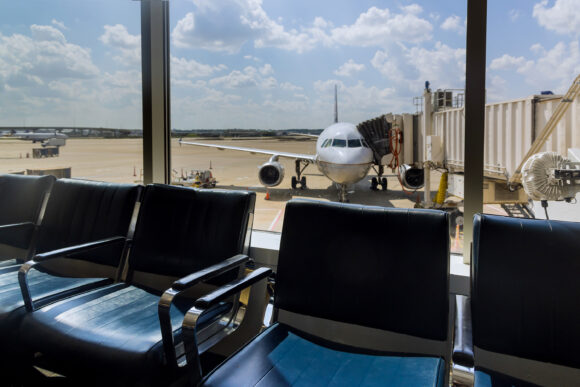U.S. airlines said on Wednesday the rollout of new 5G services was having only a minor impact on air travel as the U.S. Federal Aviation Administration (FAA) said it has issued new approvals to allow more low-visibility landings.
The increased approvals for Boeing and Airbus planes meant an estimated 62% of U.S. commercial planes could perform bad-weather landings at some airports, up from 45% previously, the FAA said.
Many international carriers had canceled flights to the United States or switched aircraft on concerns that powerful signals from the 5G rollout, which began on Wednesday, could interfere with airplane systems.
AT&T and Verizon Communications agreed late Tuesday to delay switching on new telecom towers near key airports even as they turned on the new 5G C-Band service.
The FAA early Wednesday cleared aircraft using another three radio altimeters, which are used to give data on height above grounds for bad-weather landings. It approved two others earlier.
American Airlines said it had seen a “minor operational impact” including some delays and four cancellations as a result of the new 5G service and some additional impact to its regional fleets.
It expected the FAA to soon issue additional approvals “for our Airbus and regional fleets.”
United Airlines said it anticipated “minor disruptions at some airports due to the remaining 5G restrictions.”
Southwest Airlines said that initially “because of favorable weather conditions, we anticipate very minimal impact on our operation.”
Airplane models with one of the five cleared altimeters include some Boeing 717, 737, 747, 757, 767, 777, MD-10/-11 and Airbus A300, A310, A319, A320, A330, A340, A350 and A380 models, the FAA said.
“Even with these approvals, flights at some airports may still be affected,” it cautioned.
President Joe Biden on Wednesday said he had “pushed as hard I can to have the 5G folks hold up and abide by what was being requested by the airlines.”
Verizon will temporarily not turn on about 500 towers near airports, sources told Reuters, or less than 10% of their planned deployment, while the carriers and the administration work on a permanent solution.
Verizon Chief Executive Hans Vestberg told CNBC Wednesday he was confident a review of the aviation concerns around those towers near airports will “go fast.”
(Reporting by David Shepardson Editing by Chris Reese and Richard Pullin)
Was this article valuable?
Here are more articles you may enjoy.


 Founder of Auto Parts Maker Charged With Fraud That Wiped Out Billions
Founder of Auto Parts Maker Charged With Fraud That Wiped Out Billions  These Five Technologies Increase The Risk of Cyber Claims
These Five Technologies Increase The Risk of Cyber Claims  Tesla Sued Over Crash That Trapped, Killed Massachusetts Driver
Tesla Sued Over Crash That Trapped, Killed Massachusetts Driver  UBS Top Executives to Appear at Senate Hearing on Credit Suisse Nazi Accounts
UBS Top Executives to Appear at Senate Hearing on Credit Suisse Nazi Accounts 